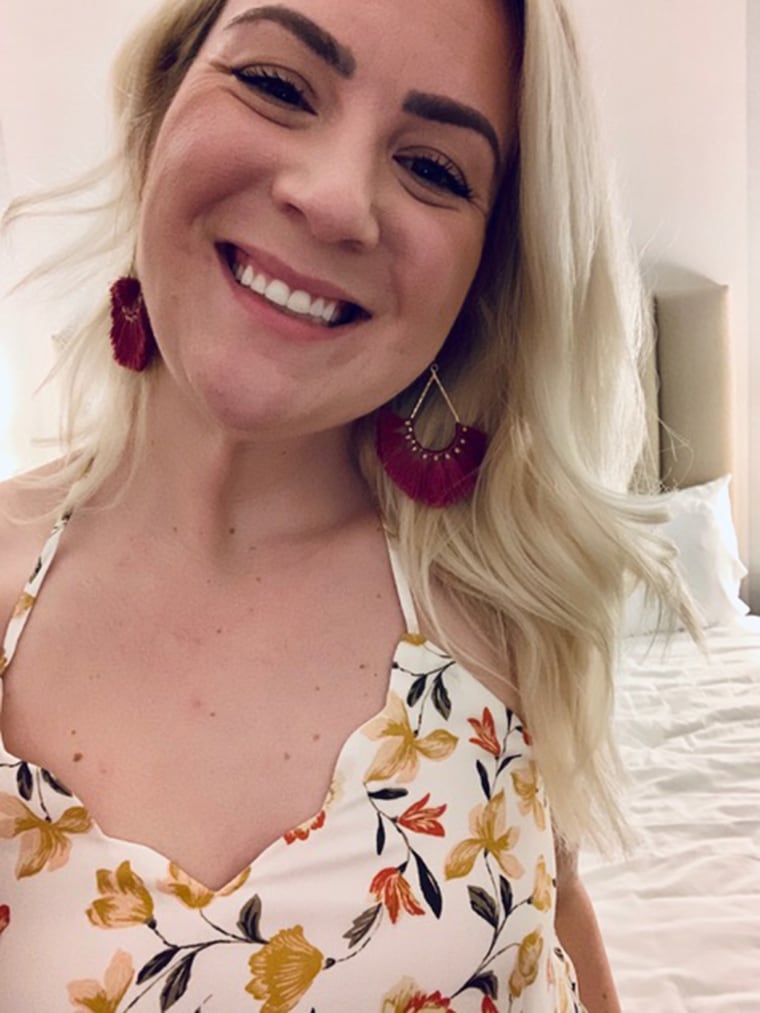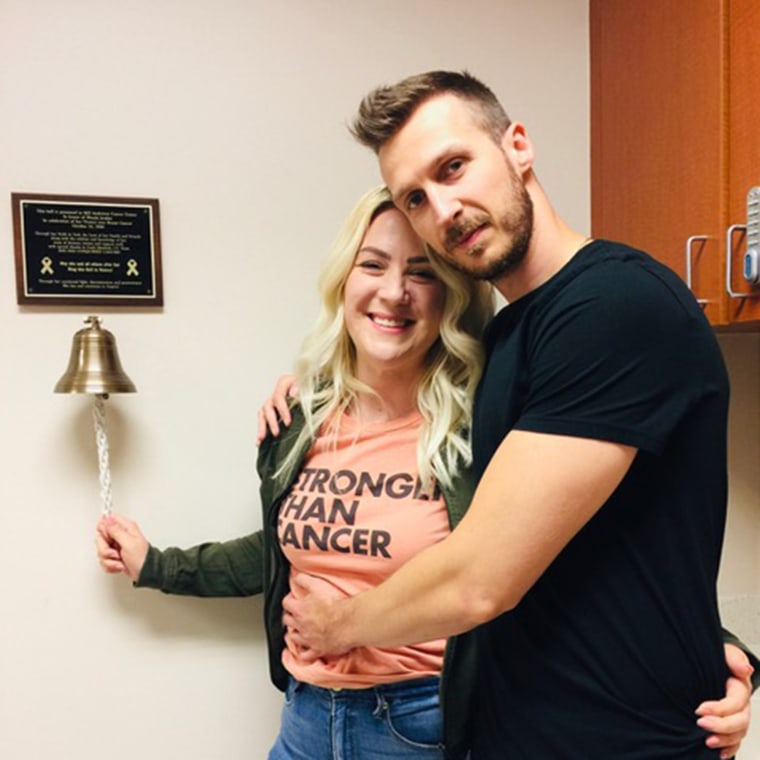For Marisa Strupp, a melanoma diagnosis was a shock — not only because it didn't appear as a dark spot in an area that had been exposed to the sun. The cancer was found on a hidden, unexpected part of her body.
The small, pink bump on her inside labia didn't bother the 29-year-old when she first noticed it last March. She thought it would just go away. When it didn't, her doctor sent her to a dermatologist who then referred her to a gynecologist to remove it.
“I wasn’t panicking,” Strupp, who lives in Chicago, told TODAY. “The gynecologist said it looks like an ingrown hair that never came to a head.”
The gynecologist removed it and sent it for testing. A few days later, in August 2018, Strupp received a call that stunned her: that flesh-colored bump was stage 2 vulvar melanoma.
“I just had no idea you could get melanoma down there. Sun doesn’t go down there,” she said. “I was kind of naively aware people just assume that if you had melanoma that you got it from the sun.”

As worried as she was about the unfamiliar disease, she focused on getting through each step of her medical treatment plan. A gynecological oncologist scanned her lymph nodes to see if the cancer had spread and scheduled the removal of four of her nodes, as a precautionary measure.
One of the four lymph nodes was cancerous, which led to an upgraded diagnosis of stage 3 vulvar melanoma. She then began monthly immunotherapy injections for a year. While she has just finished treatments, she won’t know her condition until a follow-up appointment this month.
“My body is doing what it is supposed to be doing," Strupp told TODAY. "My blood work is coming back great.”
Doctors are unsure why Strupp developed the extremely rare type of melanoma. While HPV can cause vulvar cancer, Strupp had received both recommended doses of the HPV vaccine. Doctors also tested her to see if she had BRCA or melanoma gene mutations. She didn’t.
“It is very frustrating and to not know the reason why. It was definitely hard for me,” she said.
I have found skin cancer in the butt crease. No place is fully protected.
According to Johns Hopkins Medicine only 0.6% of cancers in women are vulvar. Most vulvar melanomas are dark brown or black, but they can also be white, pink, red, or other colors, according to the American Cancer Society.
Symptoms of vulvar cancer include:
- A lump
- Itching or pain
- Bleeding or discharge
Dr. Adam Friedman, a dermatologist who did not treat Strupp, said that many people think that melanoma is caused only by sun exposure. But skin cancer occurs for many reasons.
“While sun is the number one external cause of skin cancer, it is much more complicated than that,” interim chair of the dermatology department at George Washington School of Medicine and Health Sciences in Washington, D.C., told TODAY. “There is something going on beyond sun exposure.”
What’s more, melanoma can develop everywhere on the body — even areas that never see the light of day.
“I have found skin cancer in the butt crease,” he said. “No place is fully protected.”
He suggests when patients go for skin checks they are truly full-body exams. While cases of melanoma in hidden areas are rare, they do happen.
“Doctors need to think outside the box and not be pigeonholed into looking at the sun-exposed areas and what melanoma is supposed to look like,” he said.
Strupp tried finding support groups for vulvar melanoma and didn’t have great success. Most of the patients she met were much older.
“I was trying to get more information from a patient perspective,” she said. “When I talked to all these different people, I was getting frustrated that no one was my age.”
That's why she started sharing her story on Instagram. She wanted to connect to others with similar experiences. But Strupp also wanted to help others by sharing her story.
“It made me feel really good to open up to people,” Strupp said. “The more and more I could talk about it I was able to heal emotionally.”

She also hopes that by hearing her story people will realize how important it is for them to advocate for their health.
"Trust your gut until you feel right about it," she said. "I really want people to be really aware of themselves if something doesn’t feel right."
And, she wants her story to help others realize they're not alone. Her friends, family and boyfriend, Sojan Arezina, supported her throughout her treatment and that helps her remain positive.
“Cancer is not an identifier for me. It is something that came into my life and I’m working on kicking its ass," she said. “I am going to move on.”